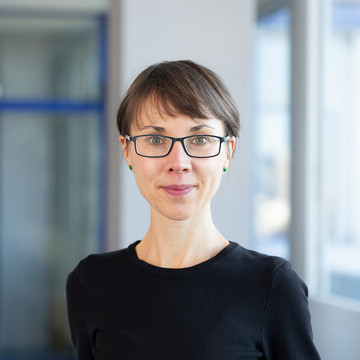Master’s Program in Clinical Psychology and Psychotherapy
Program facts and information
Degree: Master of Science (M.Sc.)
Standard period of study: 4 semesters (2 years)
ECTS credits: 120
Language: German, English
Language requirements: You must submit proof that your German language proficiency is equivalent to level C1.
Program start: Fall/
winter semester (September)
Academic calendarSchool: School of Social Sciences
Semester fee: EUR 194 (more information)
Tuition fees for international students from non-EU countries: EUR 1,500
Tuition fees for a second degree: EUR 650Program overview
The master’s program in Clinical Psychology and Psychotherapy implements the regulations for master’s programs according to the licensing regulations of psychotherapists (Approbationsordnung für Psychotherapeutinnen und Psychotherapeuten) from 4 March 2020 and is the perfect preparation for a job in psychotherapy. The focus is on acquiring an extensive and broad knowledge of psychotherapy as well as of psychotherapeutic research methods and diagnostics. The psychotherapy curriculum also includes a module in health psychology in which students get an overview on subjects like health prevention and health intervention and a module on cognitive psychology, which deepens existing knowledge and (research) skills in this area.
The degree program is very practice-oriented so that the students are required to participate in psychotherapeutic treatments in (partially) inpatient as well as outpatient settings during their studies. Cooperations with psychotherapeutic institutions, whether in (partially) inpatient or outpatient care, ensure the quality and the access to suitable internship positions. The psychological outpatient clinics (psychologische Hochschulambulanzen) are at the core of the outpatient training phase.
Contributing to ongoing research projects is an important part of your studies and prepares you for your master’s thesis. You can choose from projects from the field of Psychotherapy Research, Clinical (and Biological) Psychology, Cognitive Psychology, Neuropsychology, Clinical Psychological Research Methods, General Psychology or Health Psychology.
Why study Clinical Psychology and Psychotherapy at the University of Mannheim?
With its focus on the research areas in Cognitive Psychology and Clinical Psychology, the Department of Psychology at the University of Mannheim is one of the leading higher education and research institutions in Germany.
Numerous national and international rankings, such as the Times Higher Education Subject Ranking or the CHE University Ranking, have confirmed the outstanding quality of this program of study. They have also declared the University of Mannheim one of the best universities for studying Psychology in Germany.
The psychological outpatient clinics (psychologische Hochschulambulanzen) combine research, teaching, and therapy on the highest scientific level with the continuous improvement of psychotherapy. Patients, whether they are children, adolescents, or adults, benefit from various therapeutic approaches (psychodynamic/systemic, behavioral) that are based on the current state of research and professional ethical guidelines.
Students in our master’s programs benefit from our excellent conditions for studying: The degree structure is rather strict, due to the regulations set forth in the licensing regulations for psychotherapists. However, we offer you the greatest flexibility possible, in particular during the intensive and time-consuming practical phases of the program. In the courses, you are working in small groups on current topics in psychotherapeutic research and practice. The modern infrastructure boasts newly renovated seminar buildings with good computer equipment and libraries with long opening hours. The program and internship managers are happy to support you during your studies.
Career opportunities
With a master’s degree in Clinical Psychology and Psychotherapy, graduates are exceptionally well qualified for a job in the following fields:
- clinical-therapeutic institutes, health care institutions
- counseling centers or independent counseling
- psychotherapy research and teaching
After passing the licensing exam, graduates have the job title “psychotherapist”. In the post-graduate continuing education phase of five years, you focus on the treatment of children and adolescents, or on the treatment of adults, or on neuropsychology and on at least one form of psychotherapeutic therapy (behavioral therapy, depth psychology-based psychotherapy, analytic psychotherapy or systemic therapy).
After you completed the post-graduate continuing education, you can also work as an independent psychotherapist. You are then, for example, a psychotherapist for adults (behavioral therapy) (“Fachpsychotherapeutin bzw. Fachpsychotherapeut für Erwachsene (Verhaltenstherapie))”.
Required interests and skills
Students of the master’s program in Clinical Psychology and Psychotherapy should
- be interested in psychotherapy and psychopathology of people of all ages as well as neuropsychology,
- have analytical skills and very good observation skills,
- have excellent communication skills and be very empathetic,
- be very tolerant,
- be able to distance themselves from patients and to set boundaries,
- have profound knowledge of diagnostics and research methods,
- be very proficient in English.
Program structure
Module catalog
The module catalog gives you an overview of the courses and their content.Practical work
Extensive practical work in (partially) inpatient as well as outpatient care are an integral part of the master’s program in Clinical Psychology and Psychotherapy. The Internship Office of the School of Social Sciences helps students with organizing the internship.Continuing Education
Certificate programs
Strengthen your potential, deepen your knowledge, find solutions for challenges we will face tomorrow – there are many good reasons to think outside the box, get to know and try out new things even during your studies.At the University of Mannheim, you can do this in the “Studium Oecologicum” which focuses on sustainability. In our certificate program, you will acquire interdisciplinary expert knowledge which can help you to act ethically and to make holistic decisions.
Language courses
Making language learning easier: No matter if you want to learn Japanese, Hebrew, Spanish or Norwegian, take the Graduate Record Examination Test (GRE), The European Language Certificates (telc) or the TOEFL test – each semester, the University of Mannheim offers language courses and language certificates in more than 16 languages for students and non-university members, online and on campus!Studium Generale
Are you interested in IT or communication trainings or theater, music, or drawing courses? Studium Generale has a vast range of courses available to all.Doctorates
Successful graduates can pursue a doctorate at the Center for Doctoral Studies in Social and Behavioral Sciences (CDSS) of the Graduate School of Economic and Social Sciences (GESS). The doctoral programs are taught in English.
Apart from that, you can also earn a doctoral degree at one of the psychological chairs of the School of Social Sciences.
Doctoral programs and opportunities at the School of Social Sciences
General information on doctoral studies at the University of MannheimAdmission requirements and selection
In our selection process, we take numerous criteria into account. For more details, please check the selection statutes (see below). Be bold! Please do not hesitate to contact us if you need advice. We are looking forward to receiving your application!
Admission requirements
If you have not yet completed your bachelor’s degree, you may still apply for a master’s program as long as will provide a proof that you have obtained at least 120 ECTS credits.
- A bachelor’s degree in Psychology which fulfills the requirements under occupational law in accordance with section 9 subsection 4 sentence 5 alternative 1 of the law on the occupation of psychotherapists (PsychThG) or a degree which is considered equivalent to a bachelor’s degree which fulfills the requirements under occupational law in accordance with section 9 subsection 4 sentence 5 alternative 2. The degree must have been obtained at a university or a higher education institution equivalent to a university and correspond to at least 180 ECTS credits or a regular period of study of at least three years.
- The proof of compliance with the requirements under professional law must be provided in the form of a degree certificate, the Transcript of Records or an additional certificate of the higher education institution at which the bachelor’s program has been completed.
- The proof of equivalence must be provided in the form of a certificate of the higher education institution, at which the program has been completed or the Transcript of Records in combination with the module catalog of the completed program.
- Proof of proficiency in German
Selection criteria
- The final grade or – for students still completing their degree – the grade average of the bachelor’s program
- Result of the admission test
- The admission test for the master’s programs in Psychology may be taken at the University of Mannheim.
- Additional qualifications relevant to the program, including:
- practical experience gained in the course of employment, jobs or internships in health care, in an educational or pedagogical field of activity or in research and teaching in these or other areas of Psychology.
- scientific conference contributions and publications.
Selection statutes
Under “Admission requirements and selection” we have compiled the most important selection criteria of the program for you. For more detailed explanations of the selection process and the legally binding requirements of the degree program, please refer to the selection statutes.- A bachelor’s degree in Psychology which fulfills the requirements under occupational law in accordance with section 9 subsection 4 sentence 5 alternative 1 of the law on the occupation of psychotherapists (PsychThG) or a degree which is considered equivalent to a bachelor’s degree which fulfills the requirements under occupational law in accordance with section 9 subsection 4 sentence 5 alternative 2. The degree must have been obtained at a university or a higher education institution equivalent to a university and correspond to at least 180 ECTS credits or a regular period of study of at least three years.
Application
Scholarships and funding
The university offers various funding opportunities. Around 200 Mannheim students receive scholarships every year, which are intended to give them the freedom to focus on their academic achievements or to continue their voluntary work alongside their studies. Find out more about the funding opportunities and feel free to apply, for example, for the Deutschland Scholarship, the Opportunity Mannheim Scholarship or the Elite Sports Scholarship Rhine-Neckar Metropolitan Region.Funding opportunities for international degree-seeking students
Application deadline
The application deadline for fall semesters starts on 1 April and ends on 15 May.It is not possible to apply for the spring semester.
Contact

Dr. Anika Skotak (she/her)
School of Social Sciences
A 5, 6
Building A – Room A 416
68159 Mannheim
Tuesdays, 10–11 am:
Online office hour via Teams
Please make an appointment:
https://www.sowi.uni-mannheim.de/en/consultation/anika-skotak/
Wednesdays, 1–1.30 pm:
Open telephone consultation hour
Tuesdays and Wednesdays, 09.00am – 2.00pm
Dr. Laura-Ashley Fraunfelter (she/her)
Fakultät für Sozialwissenschaften und Otto-Selz-Institut
L 13, 15–17
68161 Mannheim
